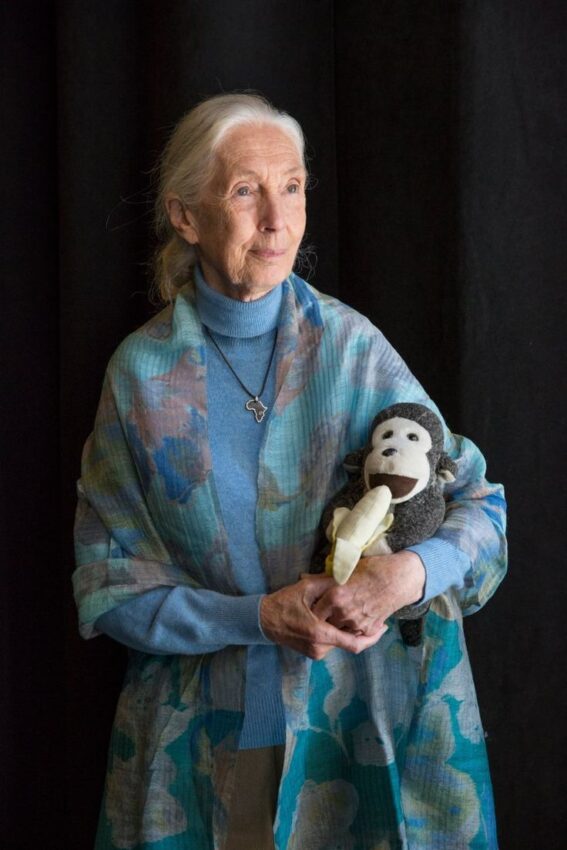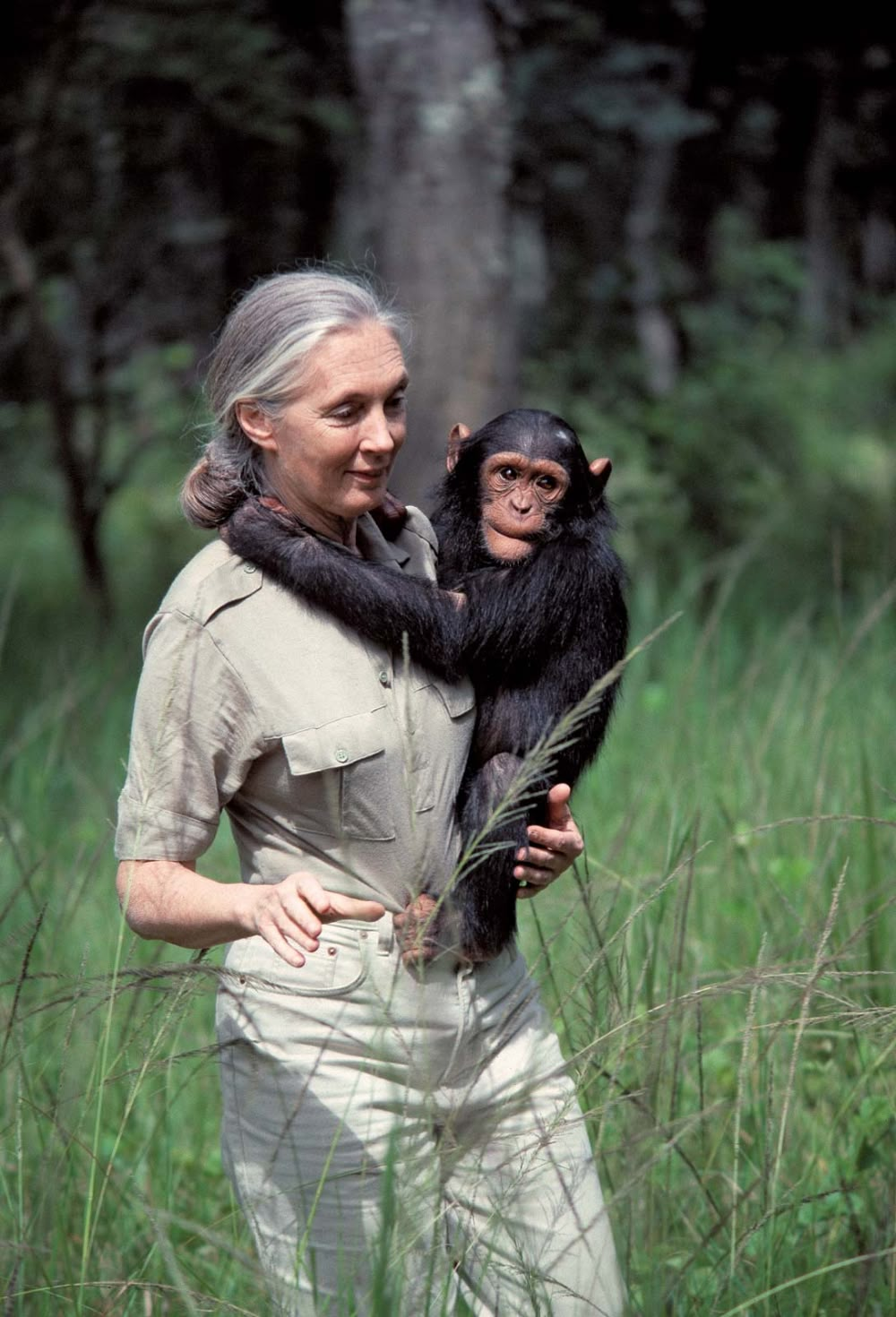Discover the inspiring life of Jane Goodall, the brave woman who changed how the world sees animals. Learn how her love for chimpanzees helped protect nature and why her message still matters today.

A Childhood Dream
Jane Goodall was born in London in 1934. As a little girl, she loved animals more than anything else. She read “Tarzan of the Apes” and dreamed of living in the jungle with animals.
Most people laughed at her dream. But Jane didn’t care. She believed in herself. Her quiet strength reminds us of inspiring real-life stories like Steve Harvey’s journey, where hope turned into success.
Into the Heart of the Wild
In 1960, Jane Goodall traveled to the Gombe Stream National Park in Tanzania. She didn’t go with a big team of scientists. She went with a notebook, binoculars, and a heart full of love.
She spent hours each day watching chimpanzees in the forest. Slowly, they began to trust her. She gave them names instead of numbers—David Greybeard, Flo, Fifi. This was something no one had done before.
Then came a discovery that changed everything. She saw a chimp break a twig, strip off its leaves, and use it to catch termites. It was the first time a non-human was seen using tools.
At the time, science said only humans could do that. Jane proved them wrong. She showed that chimps could think, plan, and even feel love and grief.
Her research, much like our blog on the Illuminati mystery, made the world question what it thought it knew.
Fighting for a Better World
Jane Goodall didn’t stop at research. As forests were destroyed and chimps were hunted, she turned into a warrior for nature. In 1977, she founded the Jane Goodall Institute, an organization focused on protecting chimpanzees and their homes.
She also created Roots & Shoots, a global youth program that teaches children how to care for animals, people, and the environment.
Jane doesn’t believe in shouting or anger. She believes in hope. She says:
“What you do makes a difference, and you have to decide what kind of difference you want to make.”
Her work matters even more today, as the world faces issues like rising temperatures and deforestation. You can also read about global changes like the solar storm blackout affecting the planet.
Jane’s Most Powerful Lessons
Here’s what Jane Goodall taught the world:
- Animals have emotions: Chimps hug, kiss, and comfort each other.
- We are not the only smart species: Chimps use tools and solve problems.
- Kindness matters: Gentle observation brought more truth than force.
- Every person can help: Even small acts can protect nature.
Her beliefs are simple but powerful. They’re like seeds—tiny things that grow into big trees.
A Life Still in Motion
Even now, in her 90s, Jane Goodall doesn’t rest. She travels the world, giving speeches, meeting young people, and spreading her message of hope and kindness.
Her voice may be soft, but her words move mountains. Just like Ratan Tata’s quiet leadership, Jane proves that being kind doesn’t mean being weak.
She is a global icon—respected by scientists, loved by animal lovers, and trusted by millions.
How You Can Follow in Jane’s Footsteps
Want to help make the world better, like Jane? Here are some ways:
- Support her work: Visit the Jane Goodall Institute to donate or learn more.
- Plant trees: Trees help the planet and give animals homes.
- Join Roots & Shoots: Get involved in local projects that help people, animals, and nature.
- Reduce waste: Use less plastic and recycle more.
- Share her story: Talk about Jane Goodall with friends and family. Tell others why animals matter.
Final Thoughts
Jane Goodall is more than a scientist. She is a symbol of peace, love, and strength. She showed us that chimpanzees are not so different from us—and that the world is worth protecting.
Her story teaches us to believe in dreams, even when no one else does. She reminds us to listen more, observe deeply, and live with heart.
In a time full of noise and rush, Jane’s life whispers a powerful truth: Kindness can change the world.

